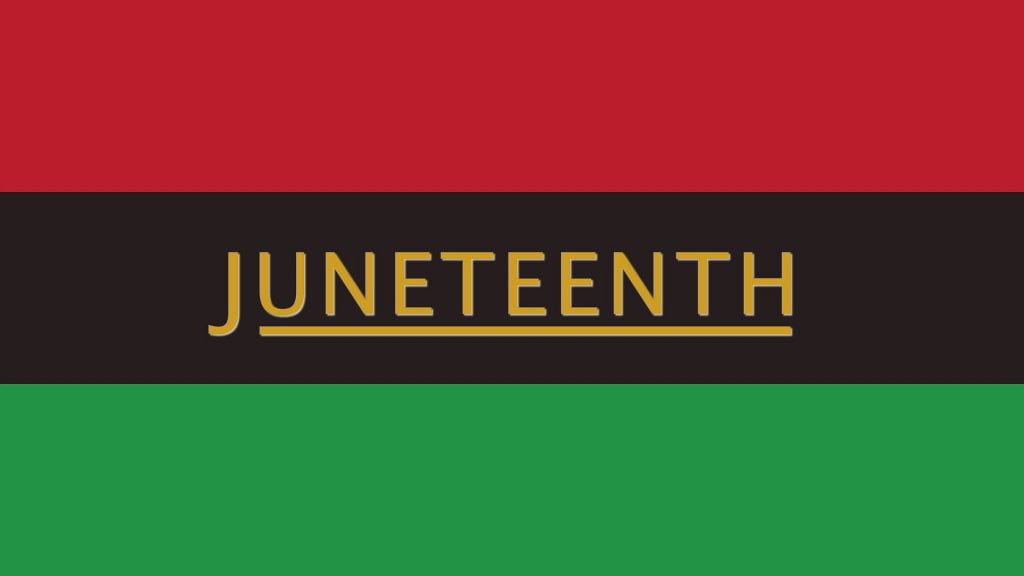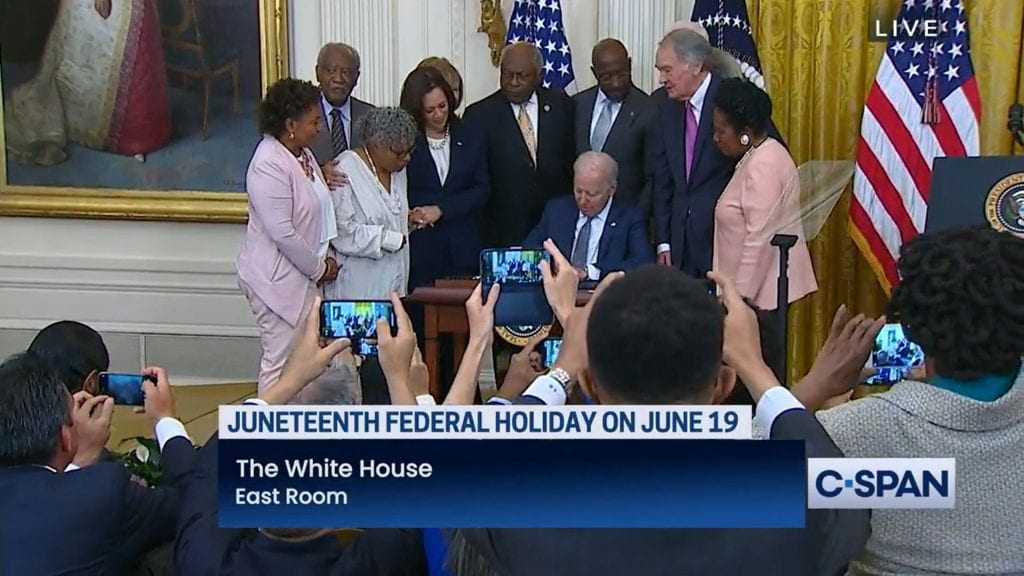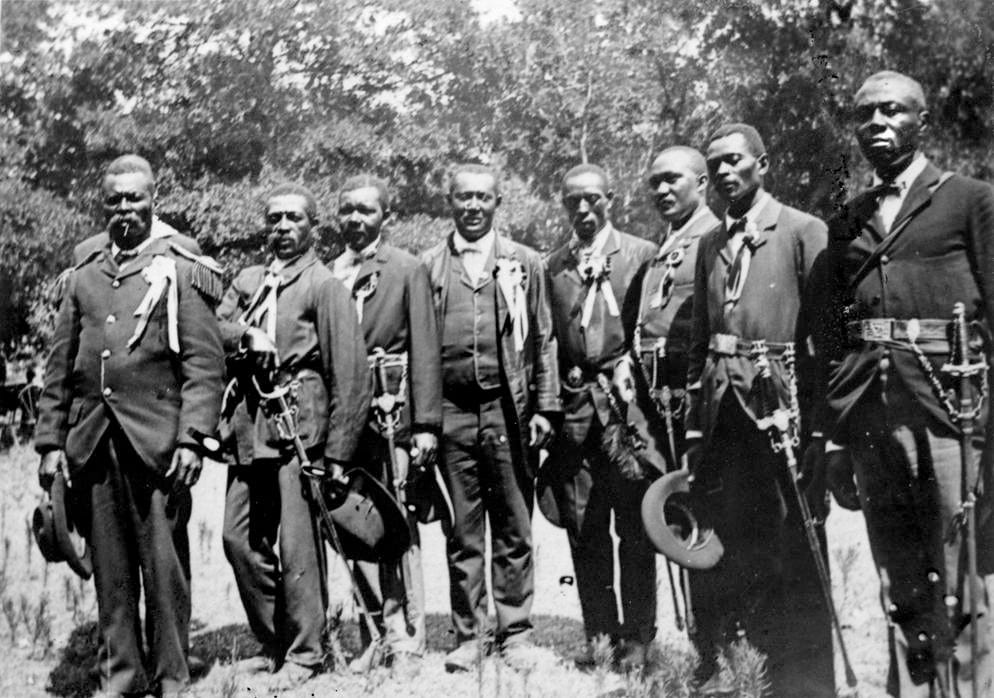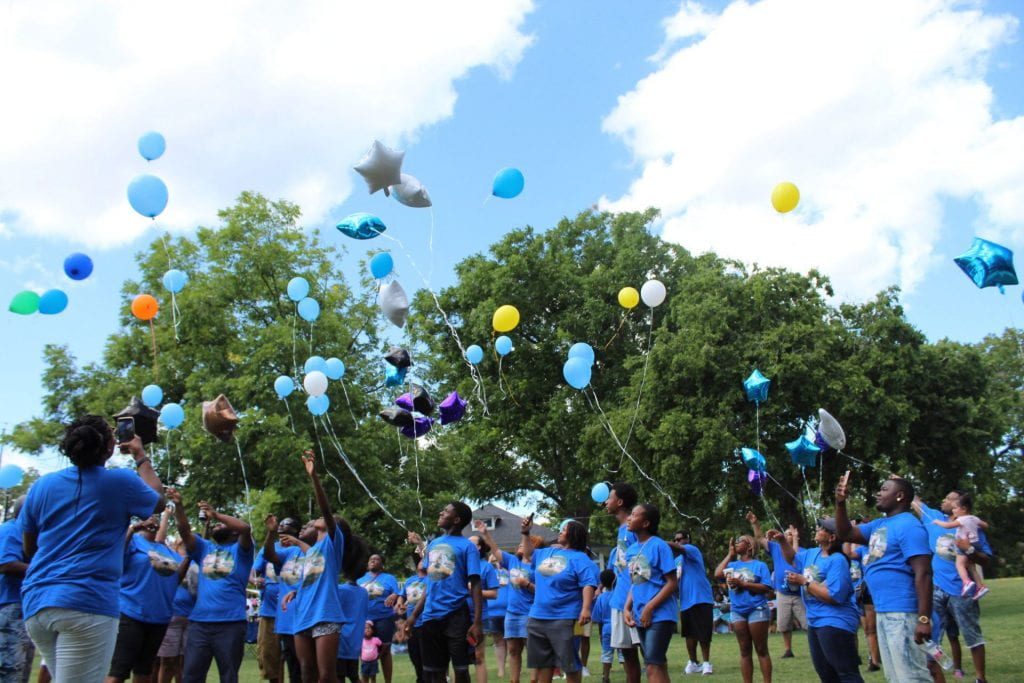
Juneteenth is an important independence day celebration for America. It is also known as Emancipation Day, Liberation Day, or Freedom Day because it celebrates the symbolic end of slavery and the process of enforcing the Emancipation Proclamation and freeing enslaved people throughout the United States.
The holiday dates back to the Civil War. President Lincoln issued the Emancipation Proclamation in 1863, but it was incremental to roll out and take effect. For Southern states like Texas that were Confederate states without Union Army presence, slavery continued after the Proclamation until the Union army arrived to announce, enact, and enforce the Proclamation. On June 19, 1865, the Union Army made it to Galveston to spread the news of freedom. Before the Union Army made it to the South, a few enslaved people who had heard about the Proclamation walked away from plantations. Other enslaved people had not heard or did not know about it, often because slave owners withheld the information. The arrival of the Union Army helped put the Proclamation in effect in the South. In 1866, a year after the Union Army arrived, to mark the momentous event, Black Texans celebrated Jubilee Day, which is recorded as one of if not the first-ever Juneteenth celebration. As free Southerners relocated, the celebration spread across the country.
A Federal Holiday

Currently, 46 states recognize Juneteenth as a day of observance. Texas was the first state to make it a holiday in 1980. However, this week, Juneteenth became a Federal holiday. On June 17, 2021, President Biden signed the bill making Juneteenth a national holiday. It is the first Federal holiday established since Martin Luther King Jr. Day in 1983. Federal workers will have off the Friday before Juneteenth starting in 2022. Biden urged Americans to mark the holiday as a day of reflection and action.
Celebrating Juneteenth is important because it helps us remember the country’s complicated, fraught path toward progress.
“Too often, we forget to acknowledge that freedom has a history, a history marked by conflict over the extent and meanings of liberty. By commemorating Juneteenth,…we will learn more about the profound sacrifices required to secure freedom from chattel slavery and how formerly enslaved people envisioned what they wanted from freedom,” says Dr. Jeff Helgeson, Chair of the Department of History at Texas State University. “We will learn more about their strivings for real freedom in a society that did not necessarily guarantee their status as free people, and where the content of freedom was defined not by timeless principles, but by political power. This history of freedom continues in our own time—it is right, then, to celebrate emancipation and to seek greater understanding of our own relationship to the long struggle to make freedom real for all.”
This year is a particularly historic moment because of the hard work of advocates and legislators who have worked tirelessly for the Federal holiday designation. “Commemoration means reflecting on the emancipation of enslaved people in Galveston and across the South,” said Pastor Jonafa Banbury, secretary of the Dunbar Heritage Foundation. “We can thank the efforts of advocates like Representative Al Edwards, who represented District 146 in the Texas Legislature. Making Juneteenth a national holiday would not have been successful without strong advocacy.”
Historical Importance

Without question, Juneteenth is important in American history, but it is also an important day in Texas history.” In Texas, it represents the legitimization of freedom,” said Dr. Dwight David Watson, Associate Professor Emeritus in the Department of History in a video produced by the University Star. “Not the idea that blacks were free, but the legitimization that freedom had arrived.”
Juneteenth also deserves attention as an important date in African American history. “I’m glad that it’s now being celebrated in states other than just Texas,” Dr. Dwonna Goldstone, Associate Professor in the Department of History and Director of the African American Studies Minor, said in the same video.
Celebrating Juneteenth is a great way to preserve our country’s history. “In the African American community we lost a tremendous amount of Black history because there was nobody to preserve it; nobody felt that it was valuable to preserve,” Dr. Elvin Holt, English Professor Emeritus of Texas State University and Archivist at the Calaboose African American History Museum in an interview with the University Star. “It gives me a great sense of accomplishment to know that I’m part of the process of trying to keep our history alive in San Marcos.
Present and Future Implications
The news of Juneteenth becoming a national holiday also brings with it the responsibility of remembering the legacy of slavery and working toward social justice and equity.
“Juneteenth is a living reminder of how tentative our commitment to shared equality can be. It is also a yearly reminder of how marginalized communities shape powerful and important counter-memories in countries often hostile to their presence,” says Dr. John Mckiernan-González, Professor in the Department of History and Director of the Center for the Study of the Southwest. “I can only hope that the same unanimous vote cast in the Senate to celebrate the overthrow of slavery can translate into votes defending universal access to the ballot, improving work conditions, and fostering a culture that provides a level of peace for Black families in this country.”
Commemorating Juneteenth as a Federal holiday is as much about the present and future of our country as it is about our past.
“Juneteenth is not a commemoration of some distant event. Rather, it is part of a need to reclaim recent heritage that has long been denied to African Americans,” says Dr. Louis Porter, Assistant Professor in the Department of History. “It’s about family—and the fact that people were enslaved in my family only four generations ago. My hope is that federal recognition will highlight this more personal aspect of the history this holiday represents even as it nationalizes it.”
Local Collaborations and Events

This year, Juneteenth also fostered new collaborations between Texas State University and San Marcos. For example, the Center for Diversity and Gender Studies helped promote holiday events with the Dunbar Heritage Association. “Texas State is very proud to collaborate with the Dunbar Heritage Association,” says Dr. Gloria Martínez-Ramos, Professor in the Department of Sociology and Director of the Center for Diversity and Gender Studies. “This year is the first of many collaborations that we will sustain between the Center for Diversity and Gender Studies and the Dunbar Heritage Foundation.”
If you want to celebrate Juneteenth, consider joining events at Texas State and in San Marcos. The African American Alumni Network is hosting a Juneteenth Game Night on Zoom on Saturday, June 19 from 6:30 p.m. to 8 p.m. The Calaboose African American History Museum is hosting a Juneteenth Grand Reopening on June 19 from 10 a.m. to 5 p.m. The Dunbar Heritage Association will host their annual Juneteenth celebration at Dunbar Park and the Dunbar Recreation Center on June 19 from 10 a.m. to 7 p.m. The Juneteenth Foundation will host their annual barbeque cookoff at City Plaza Park on East Hopkins from 11 a.m. to 5 p.m. on June 19.
